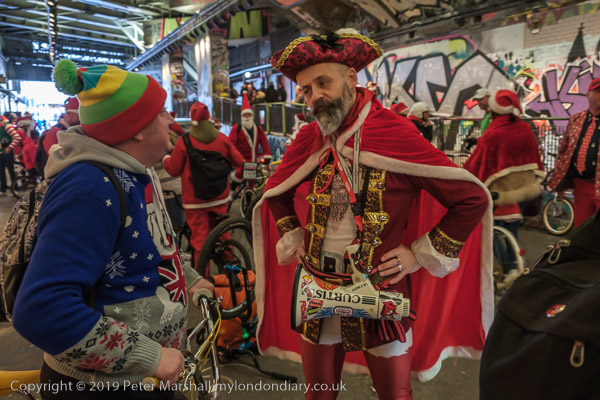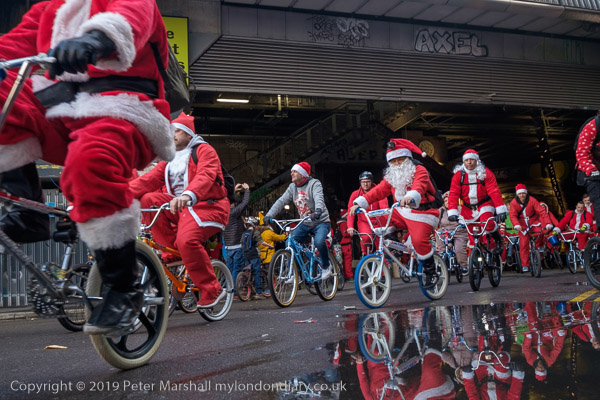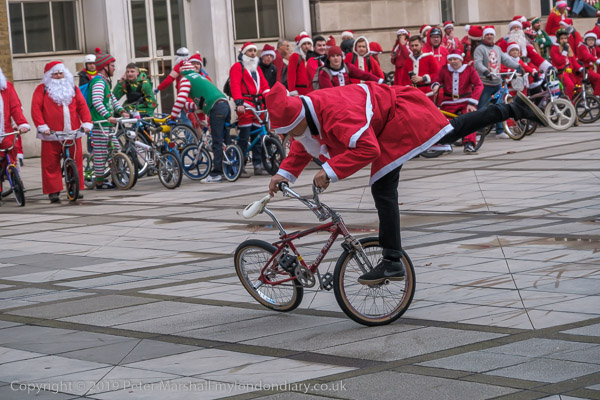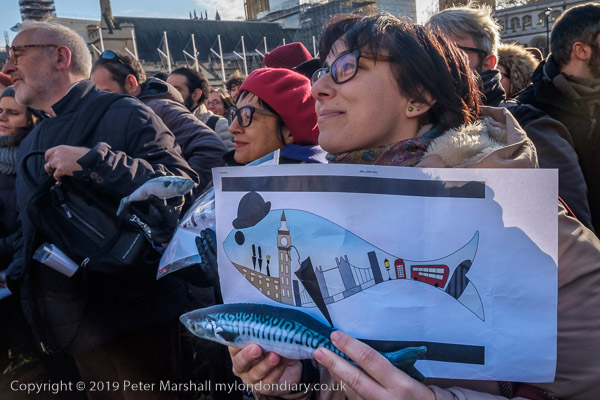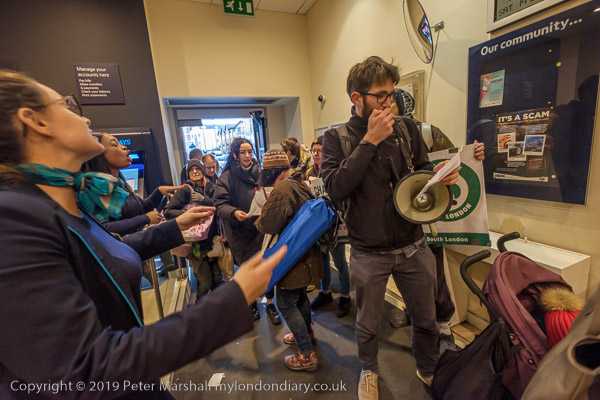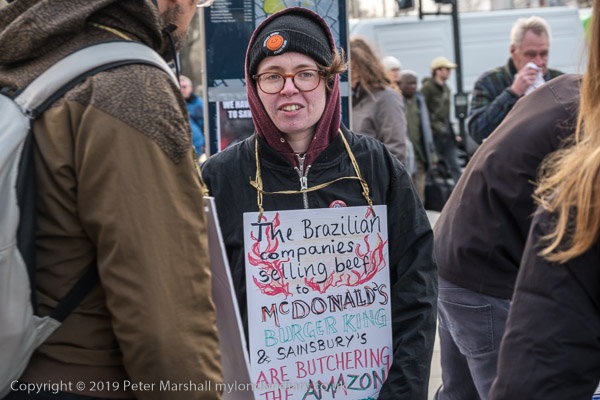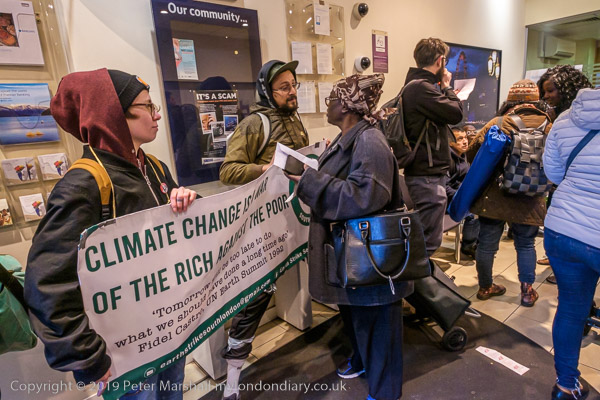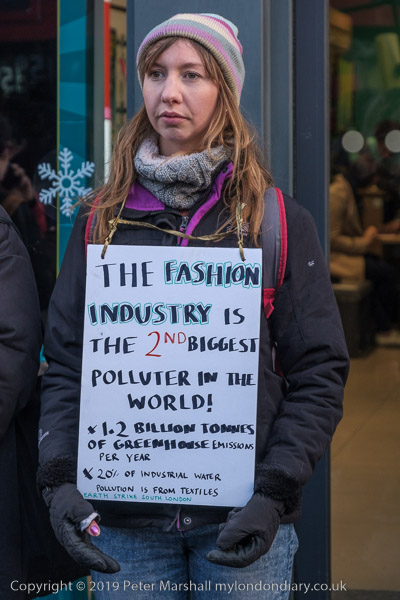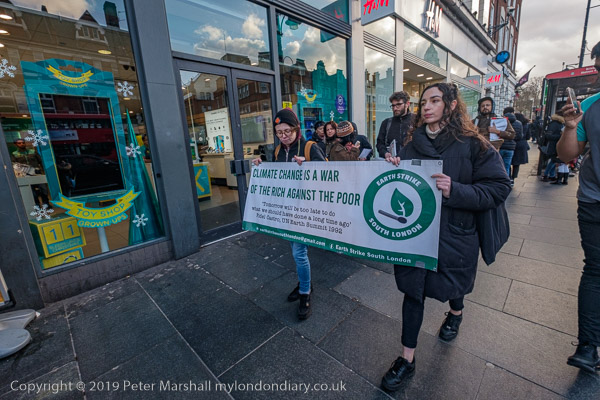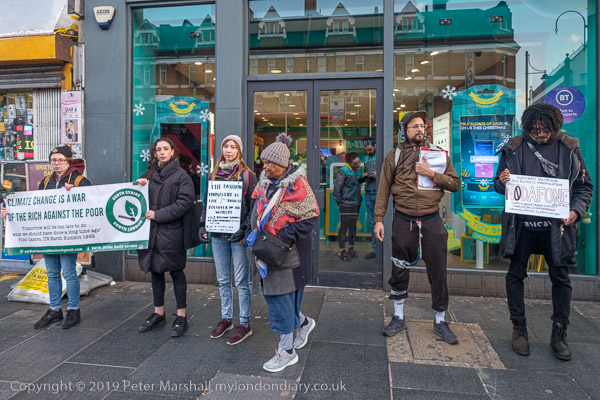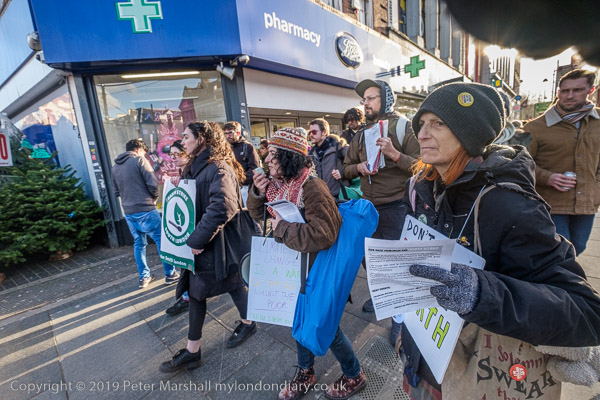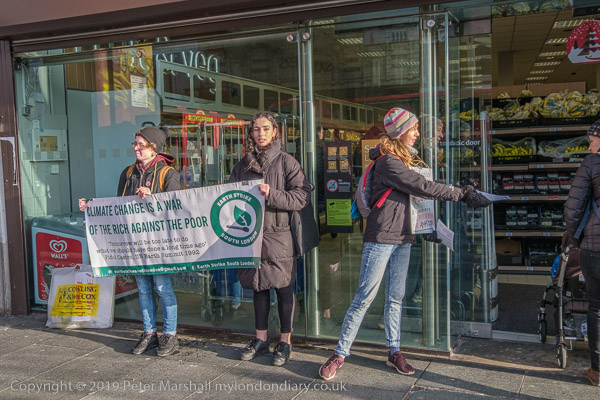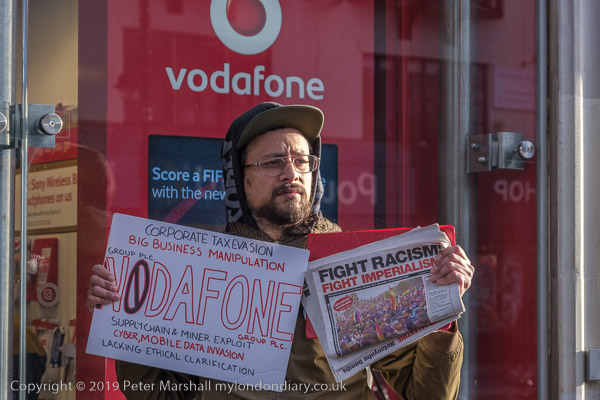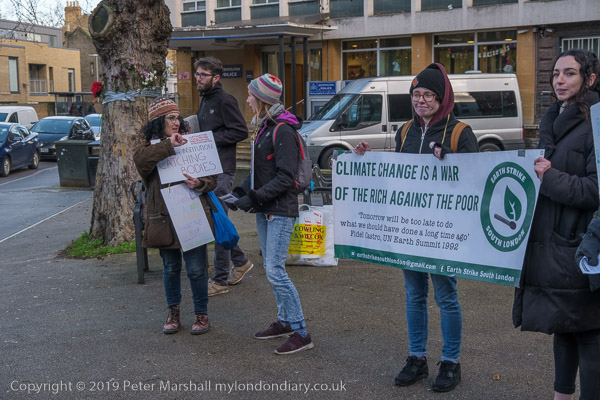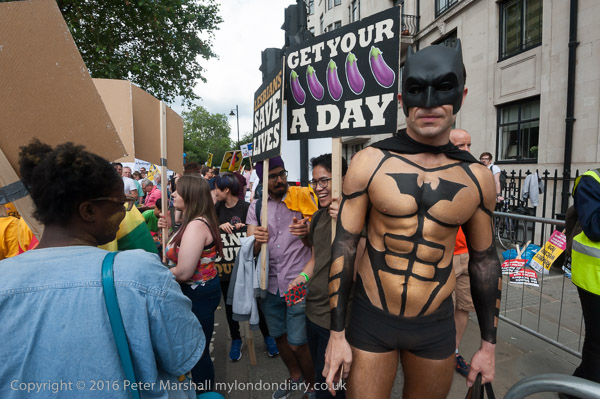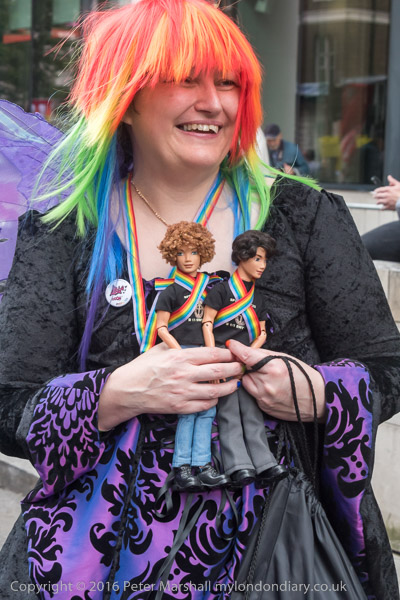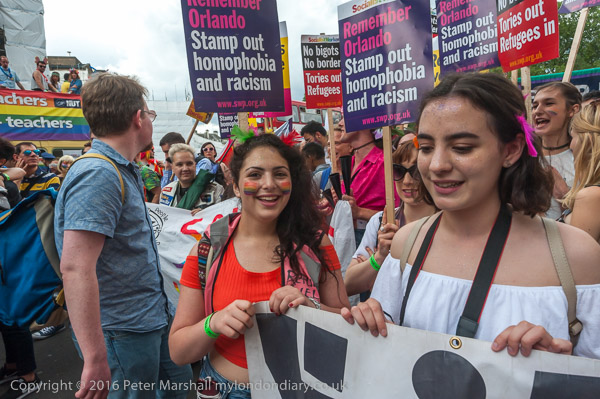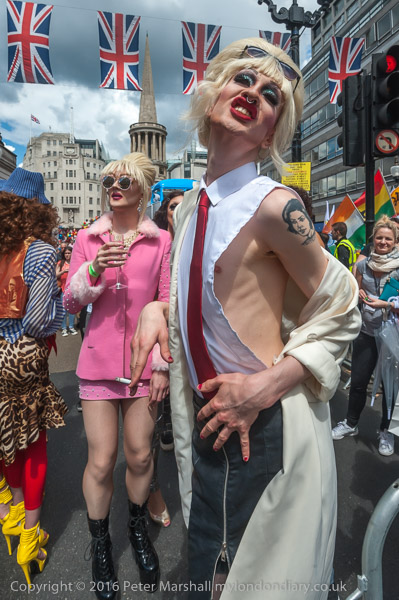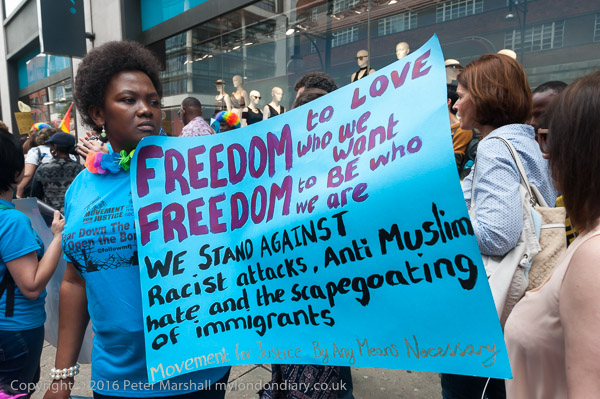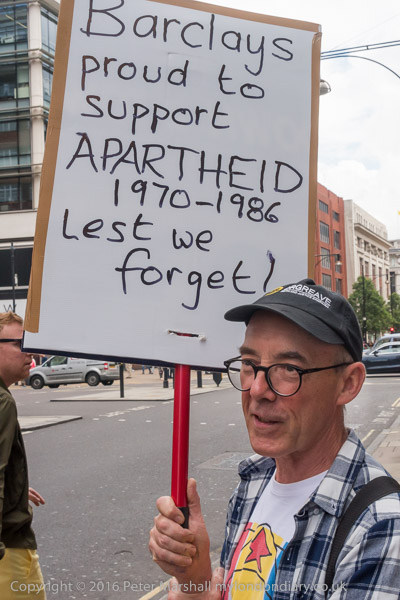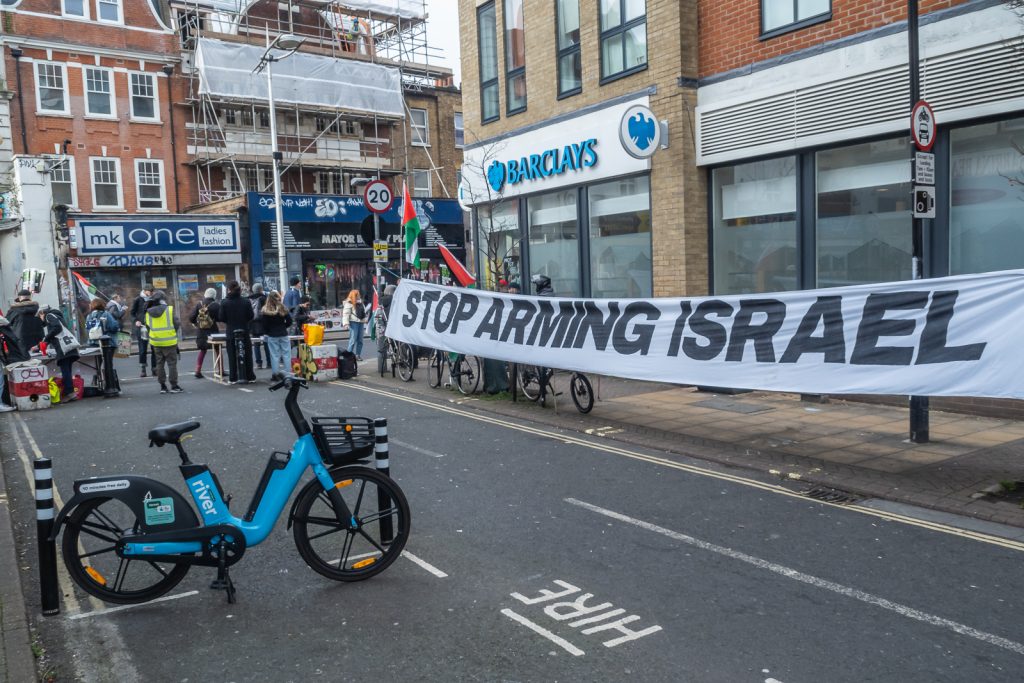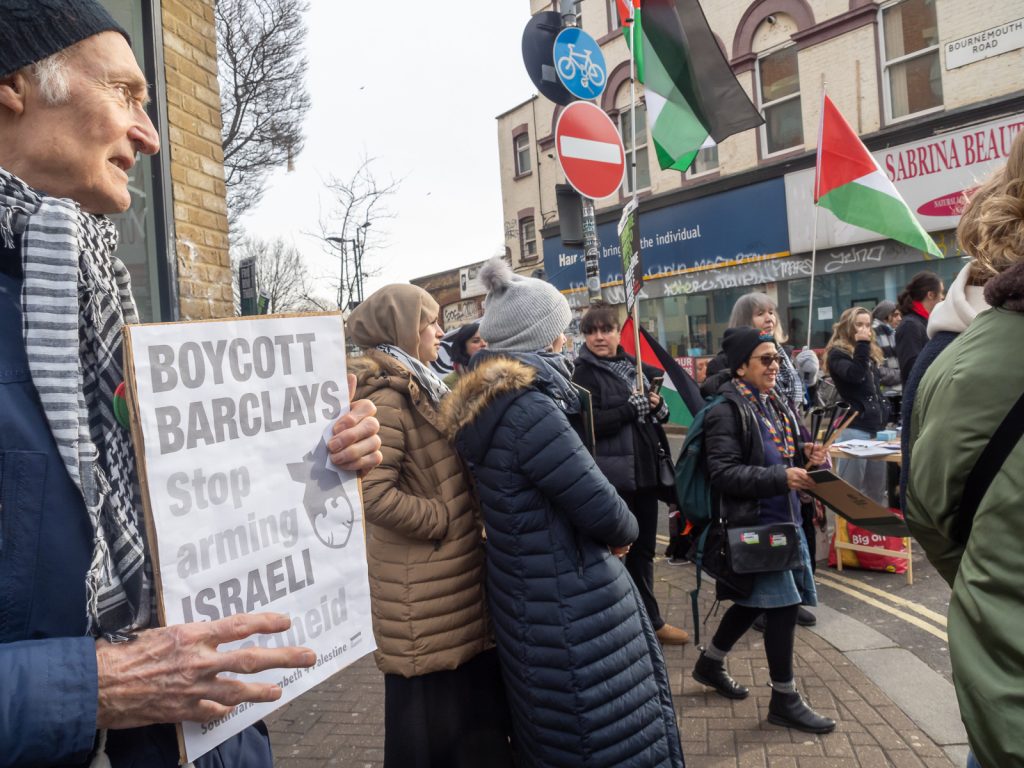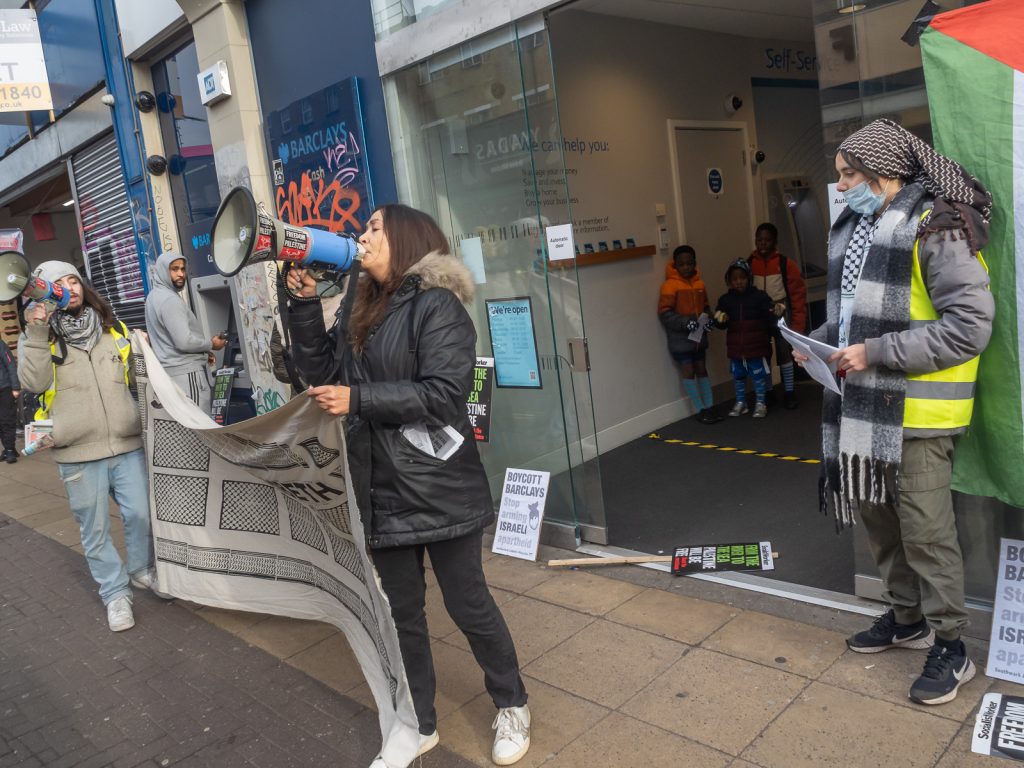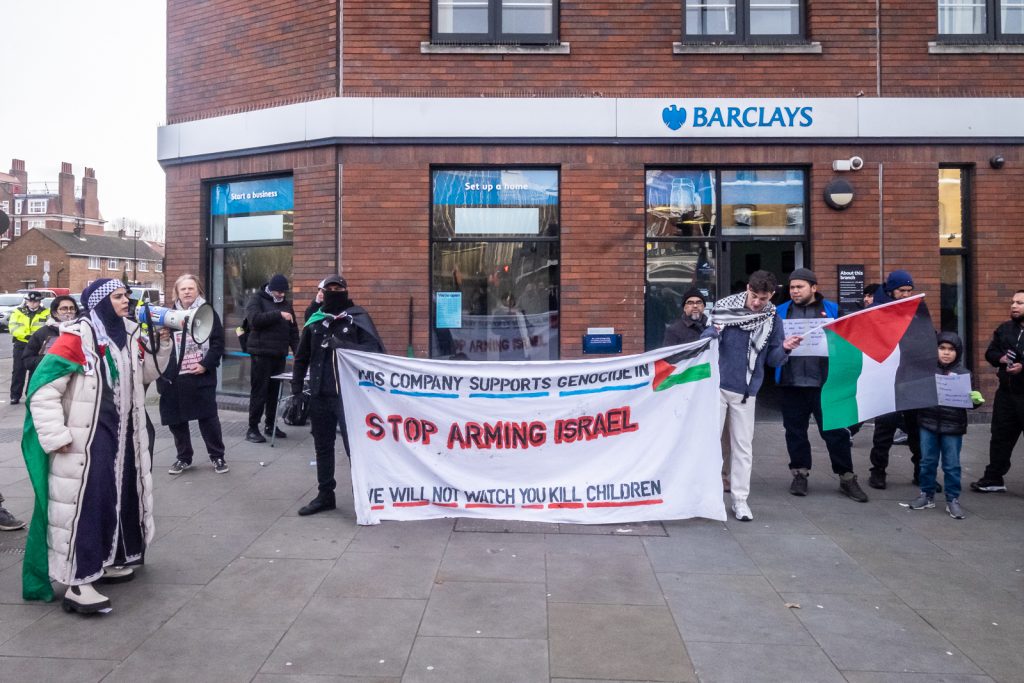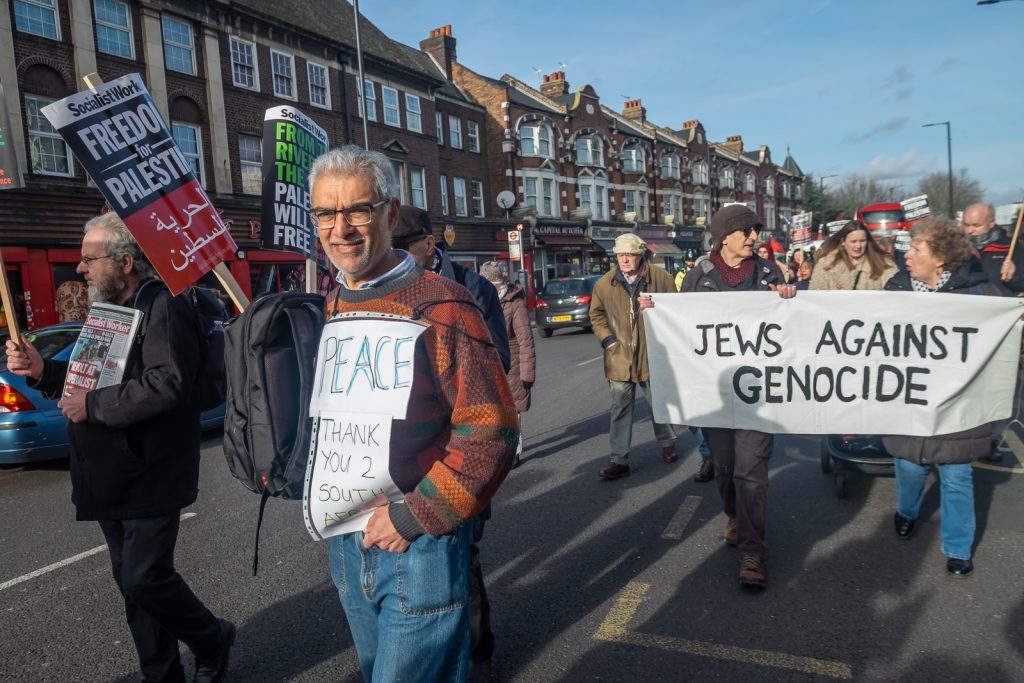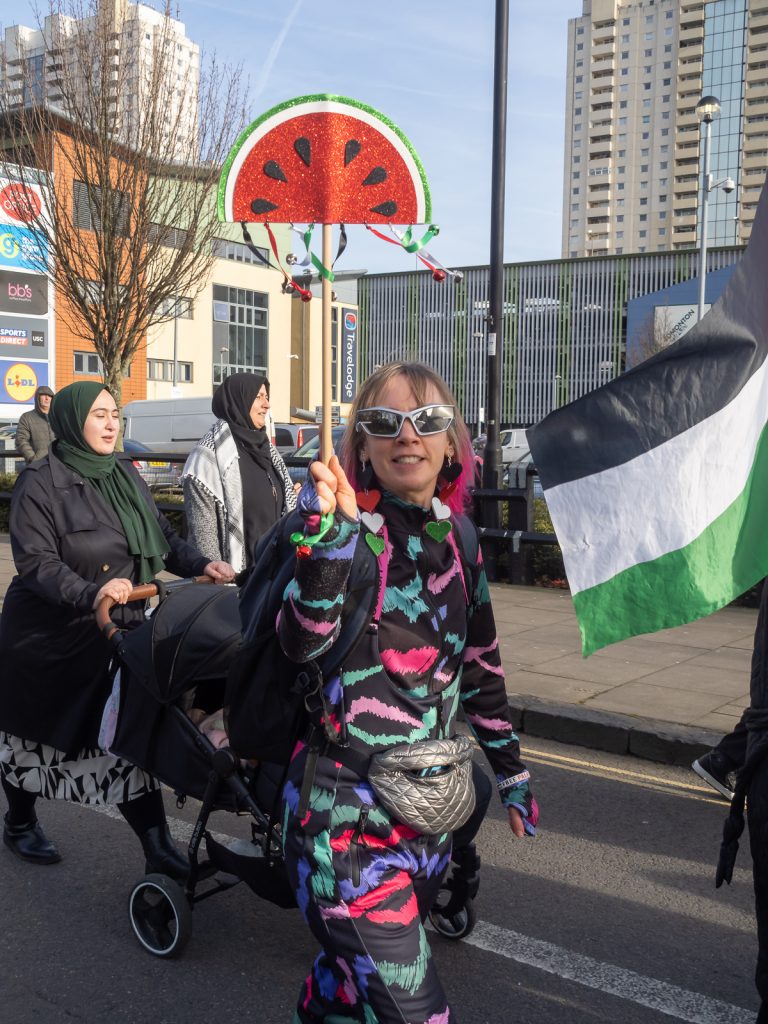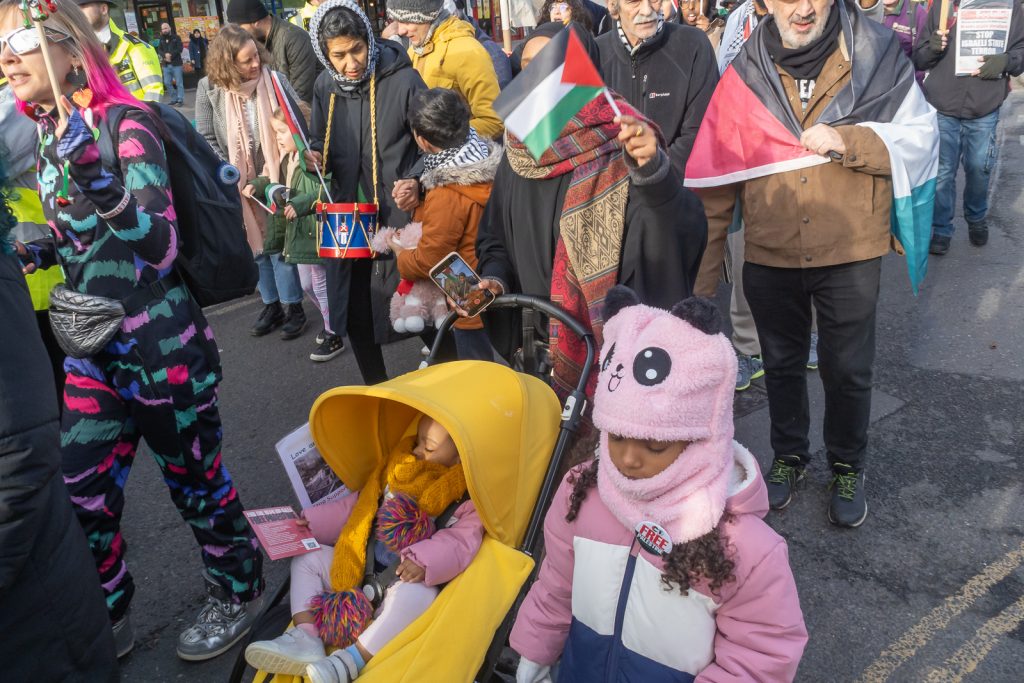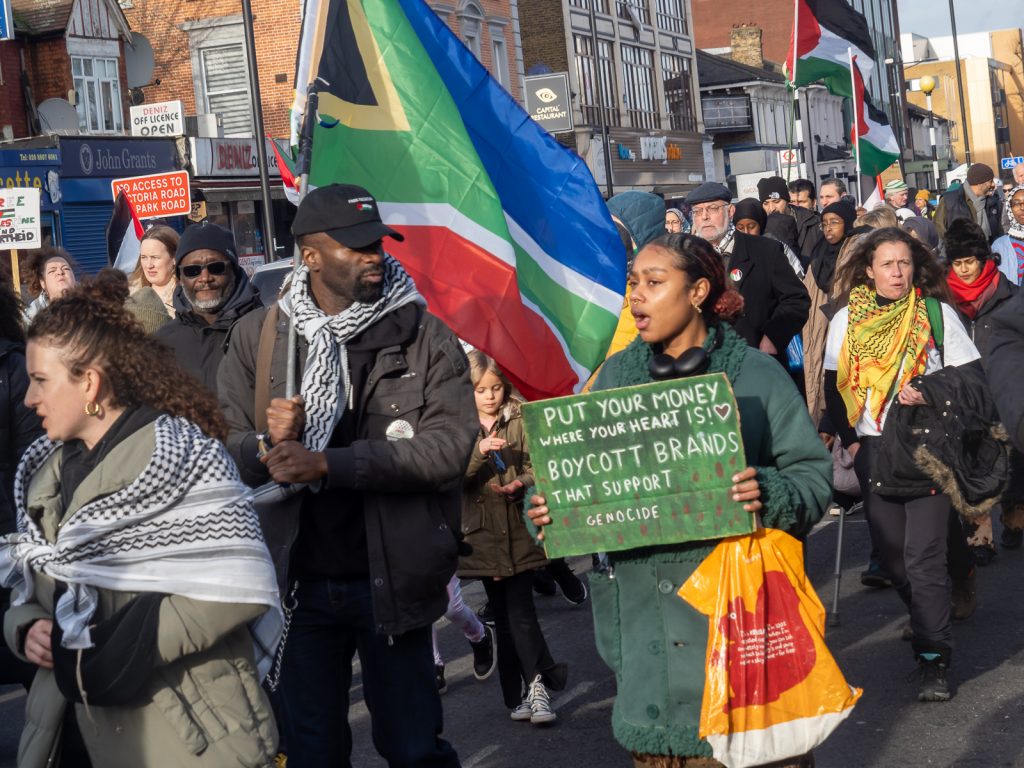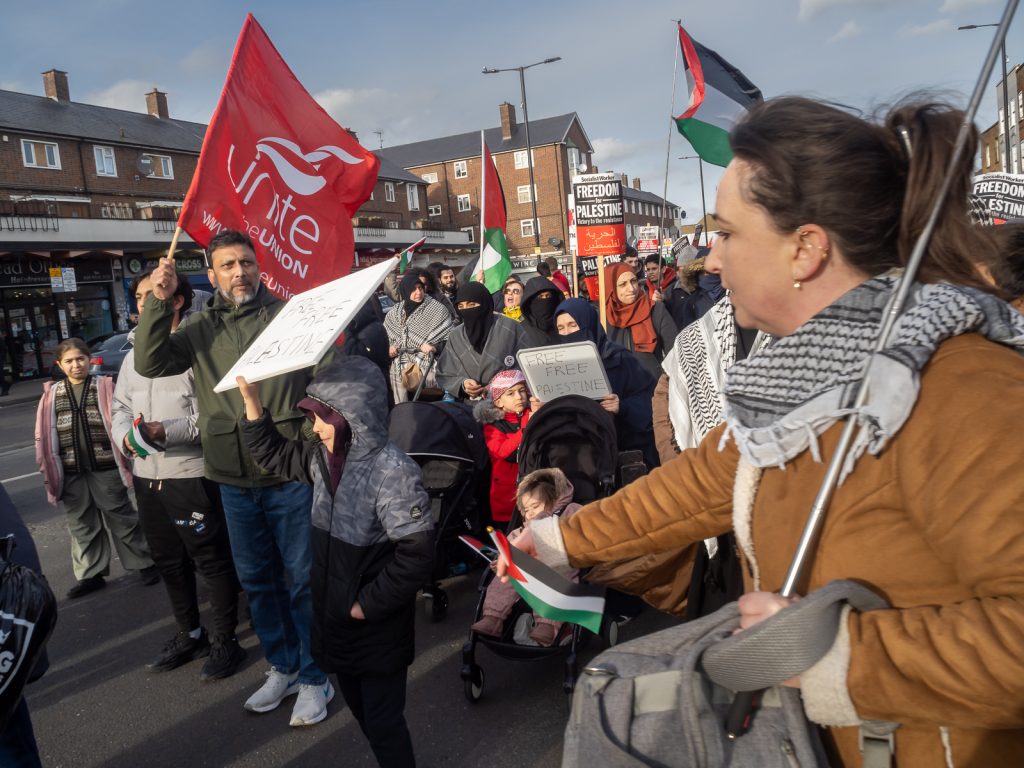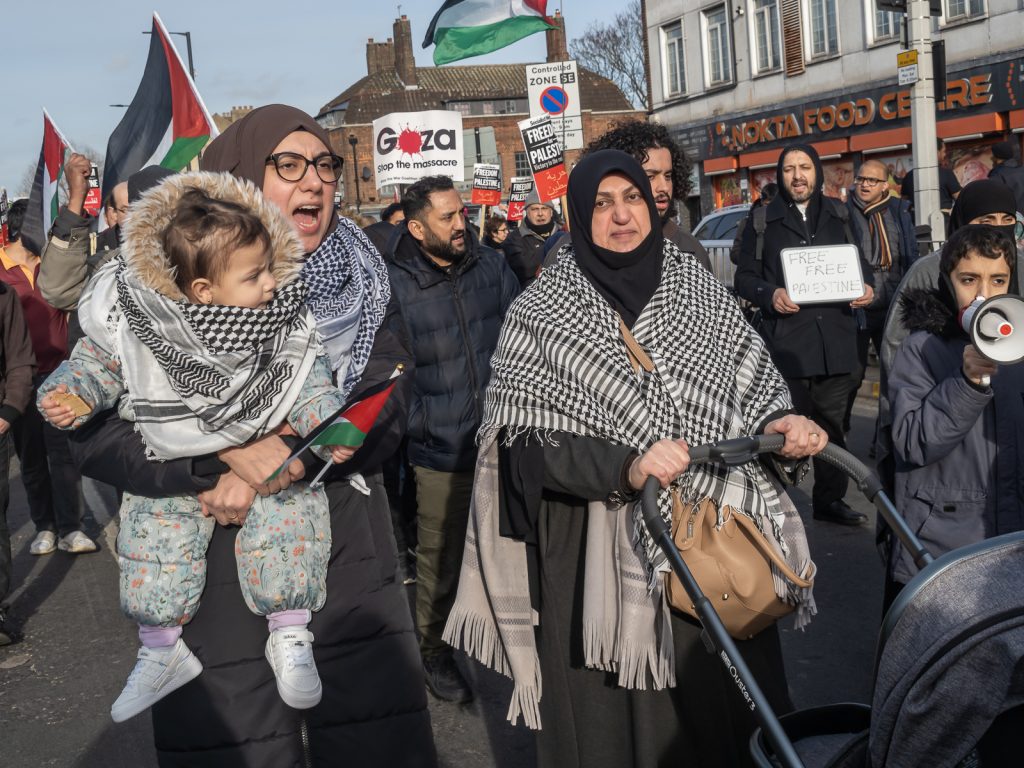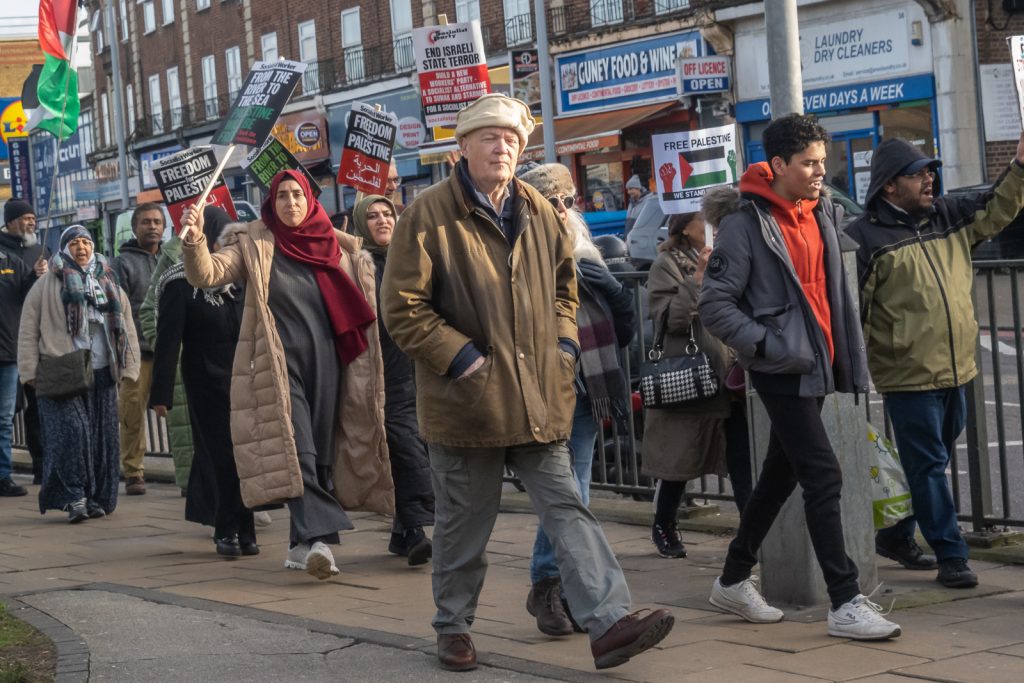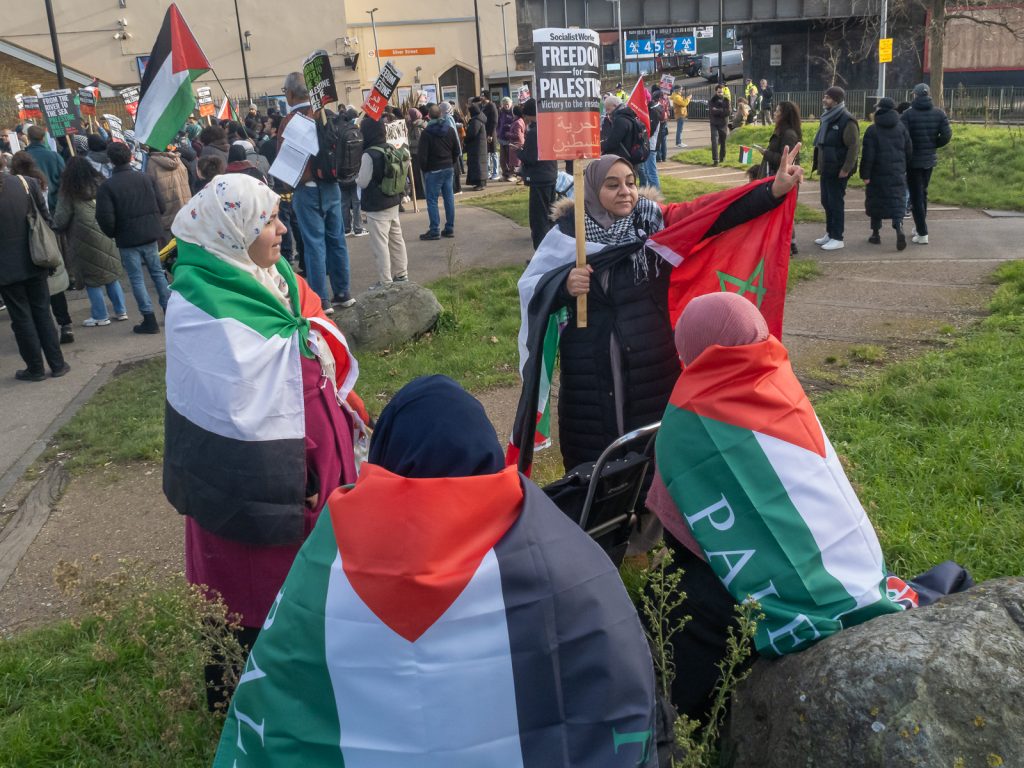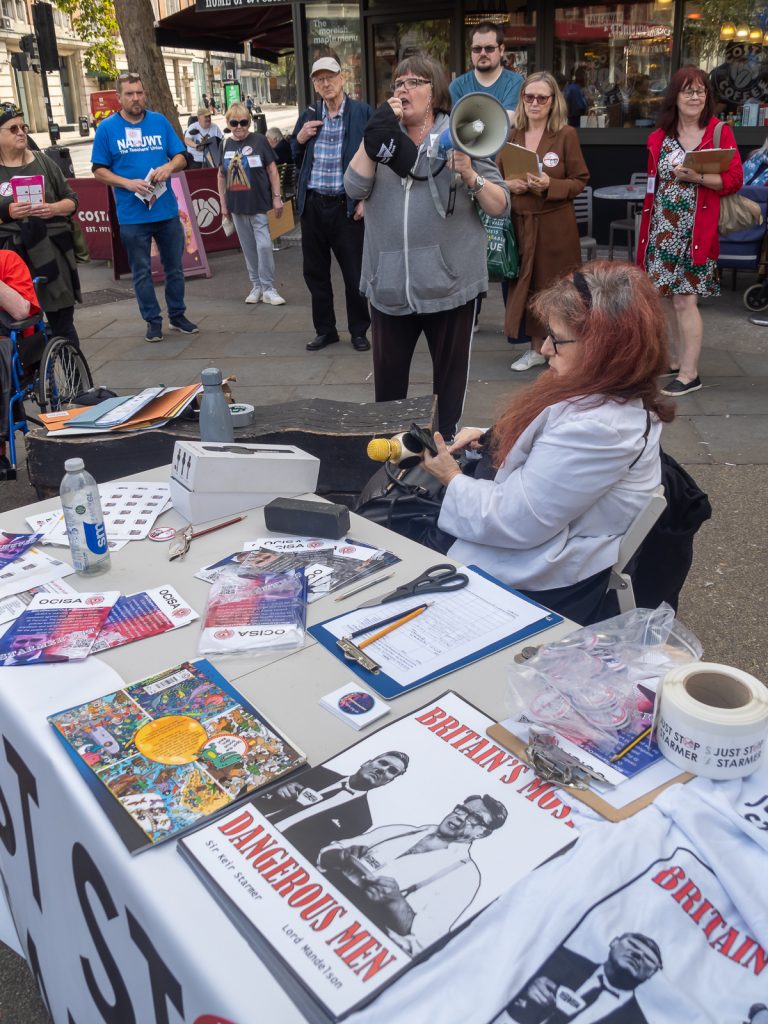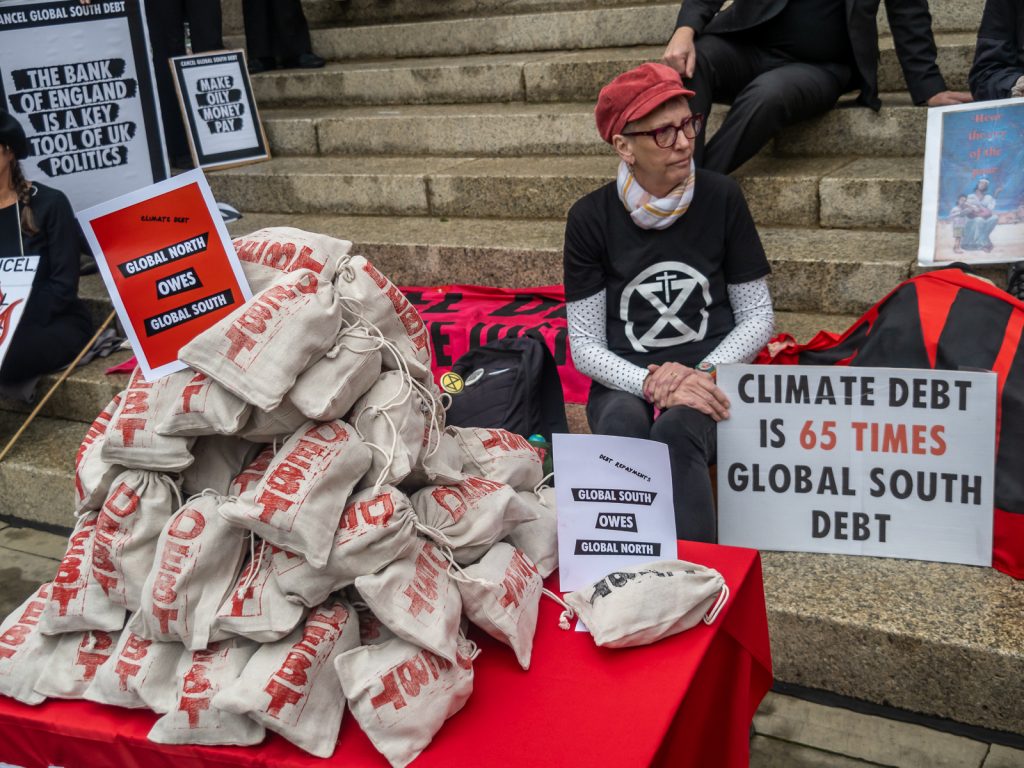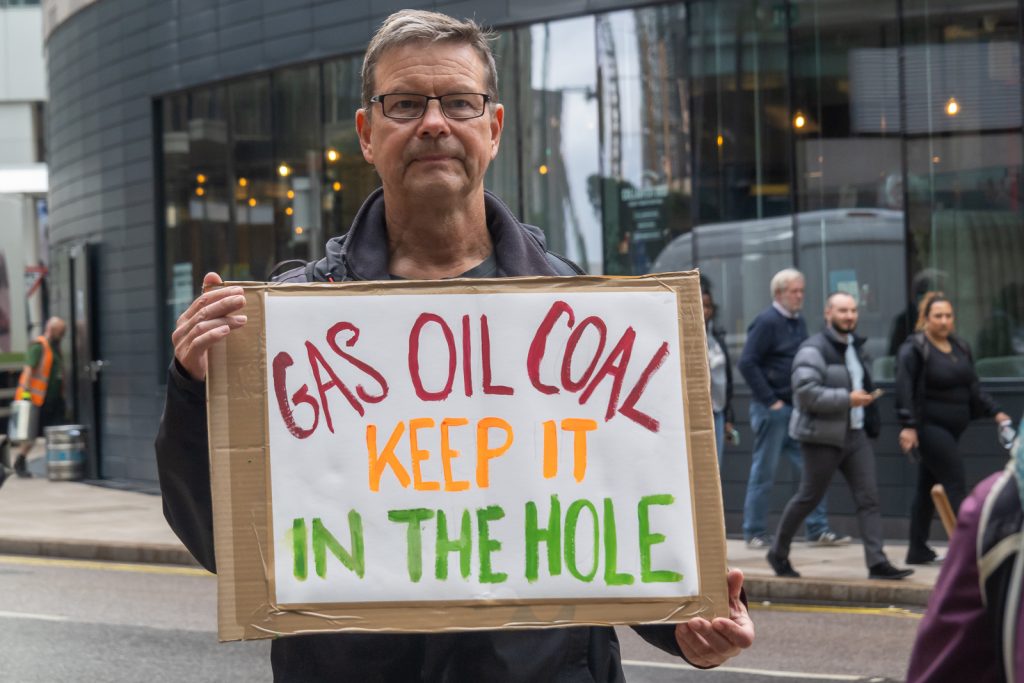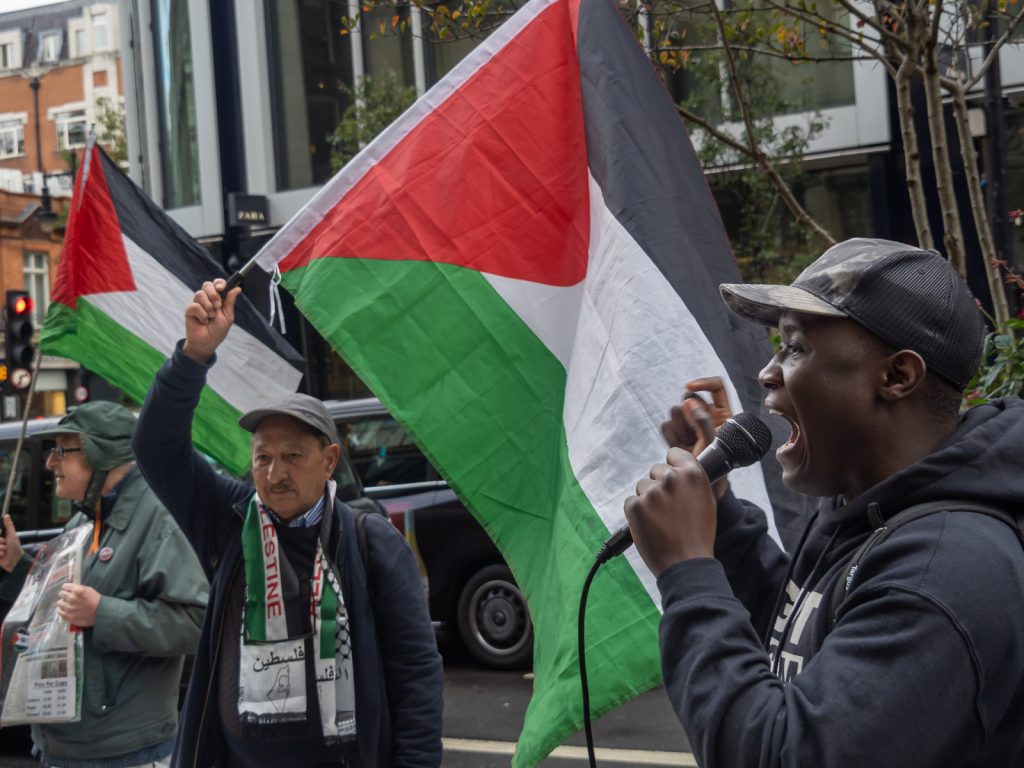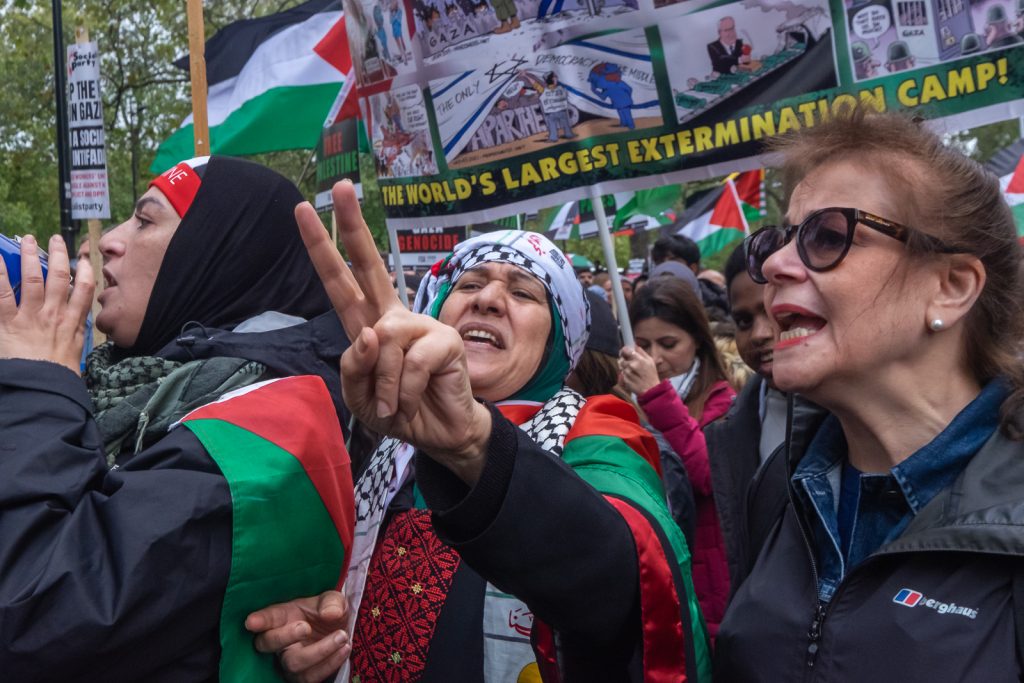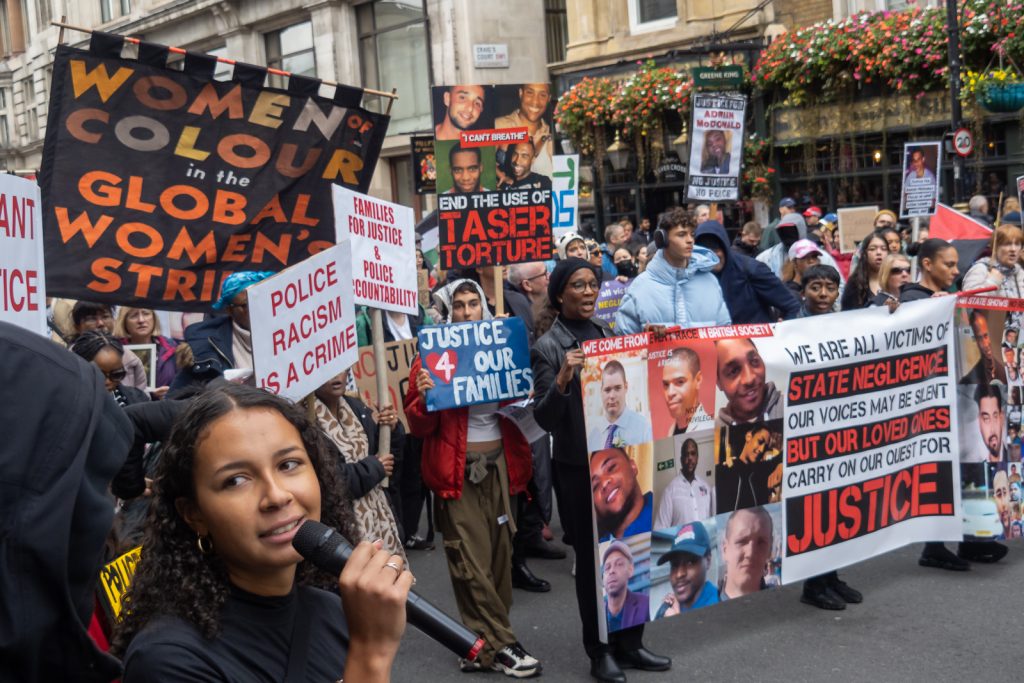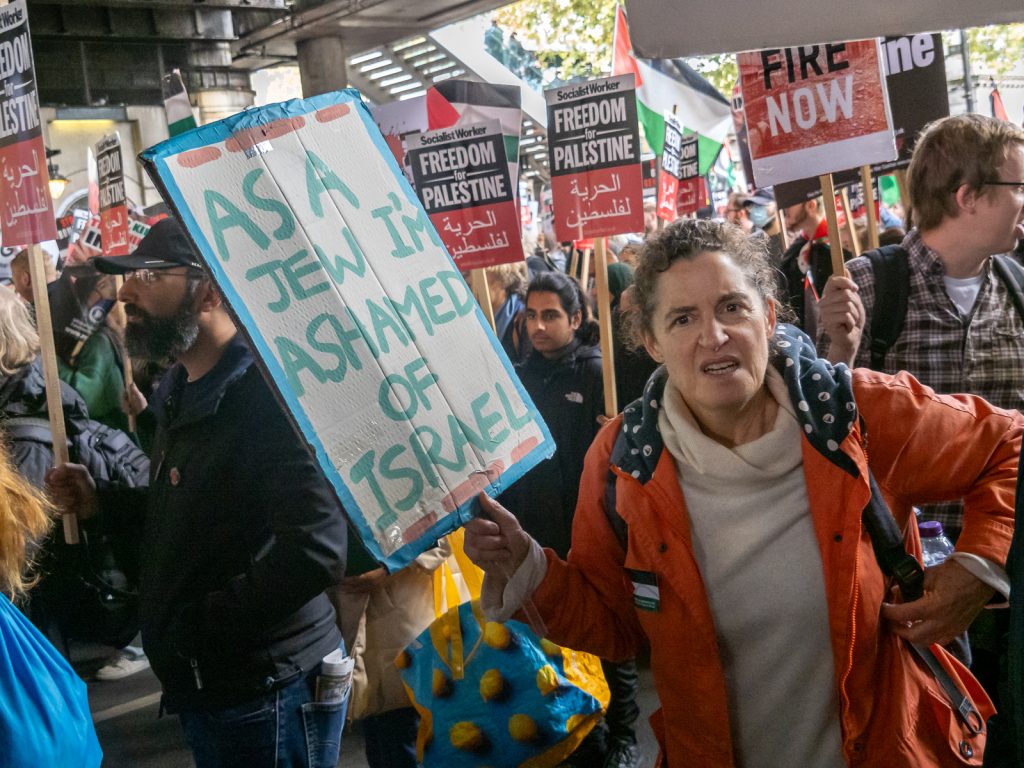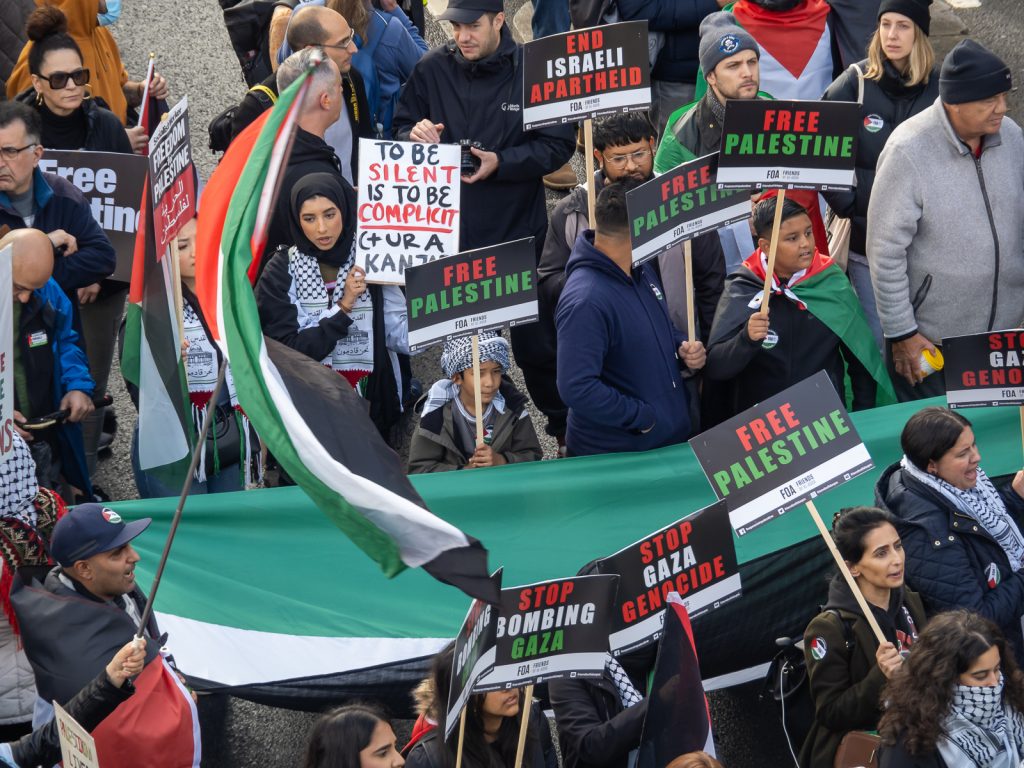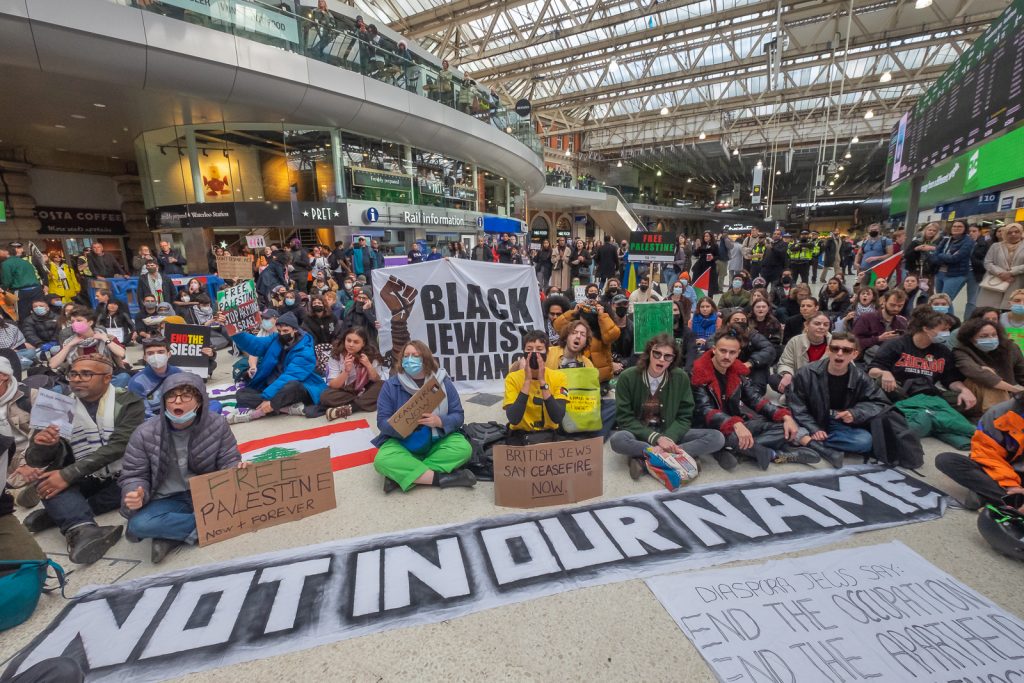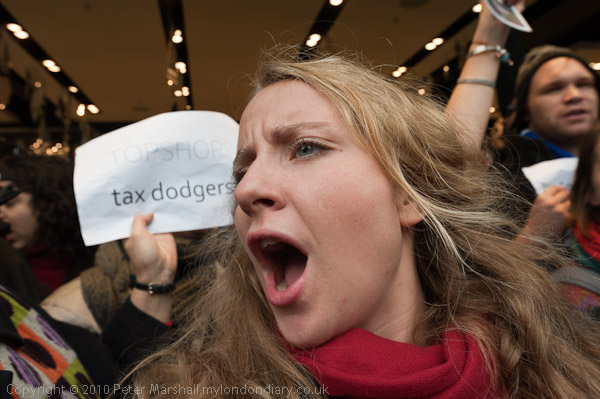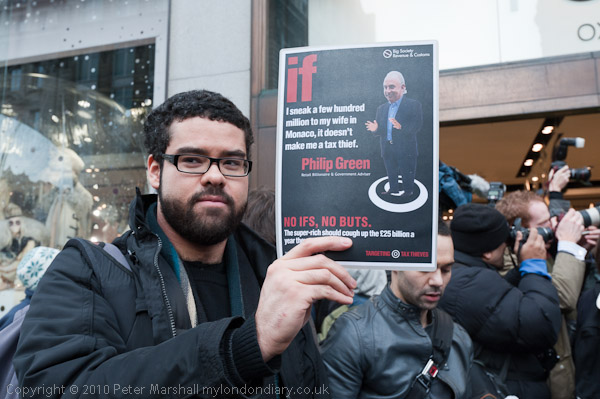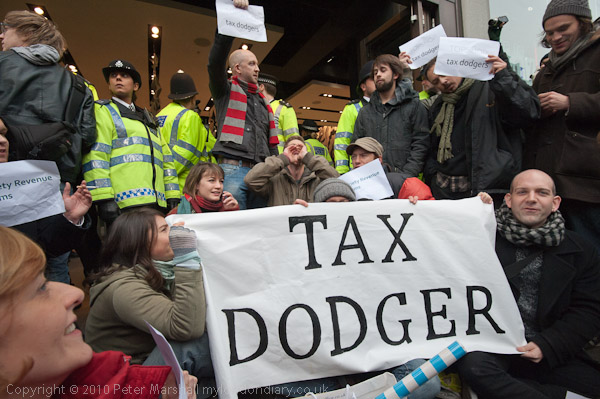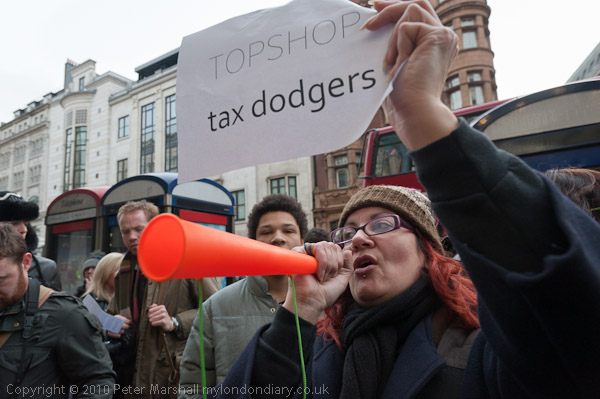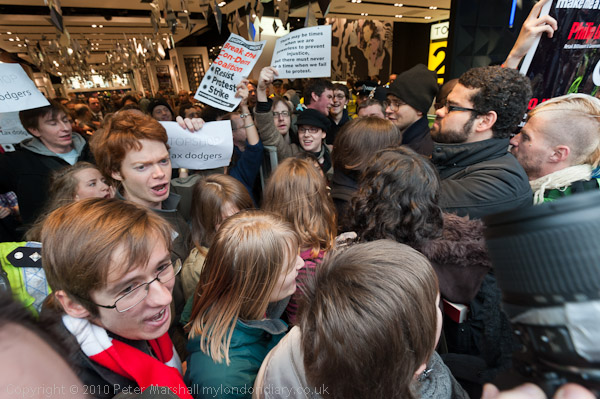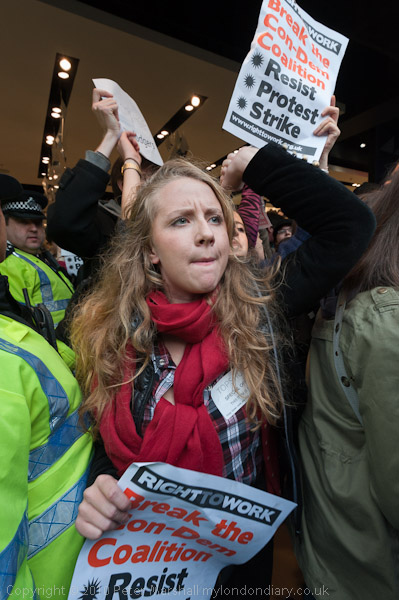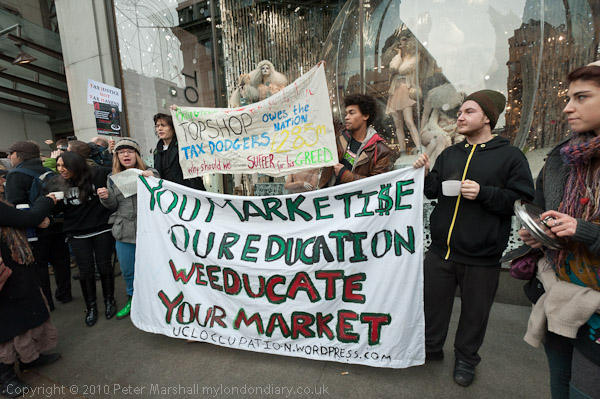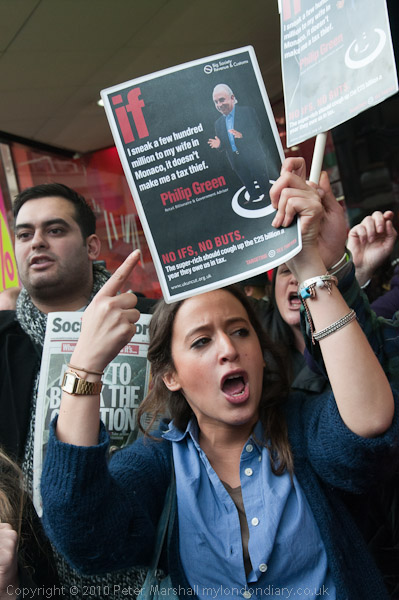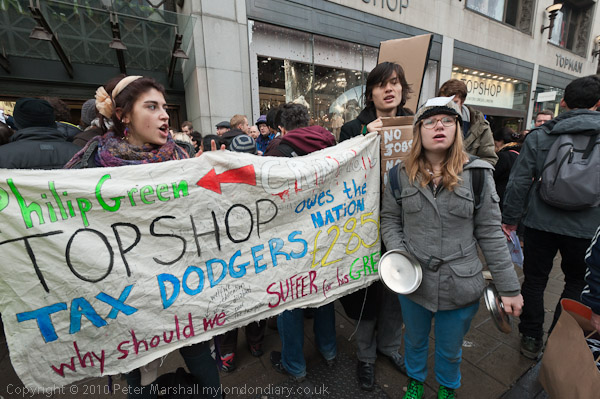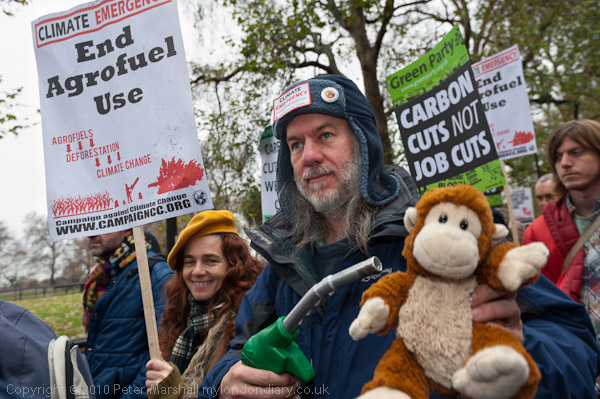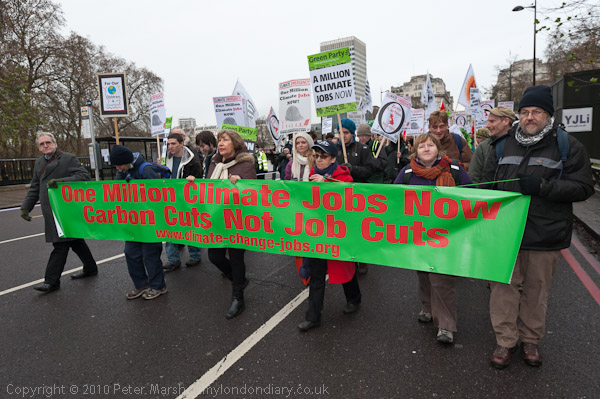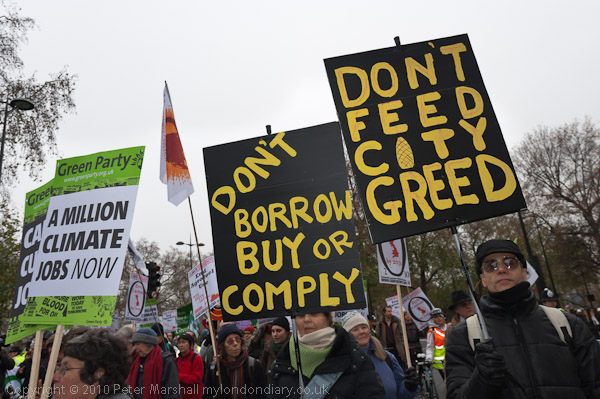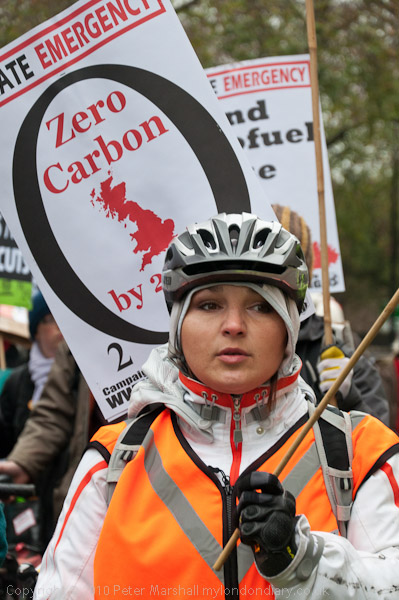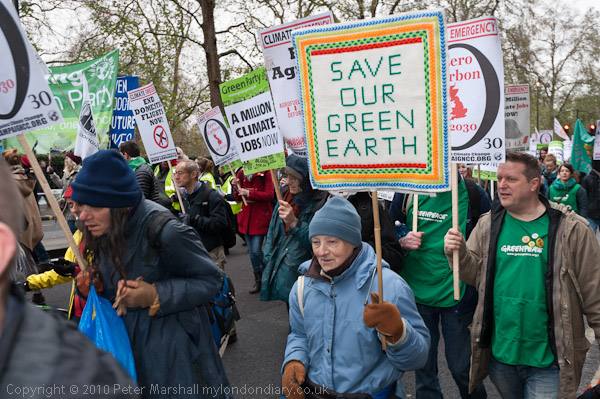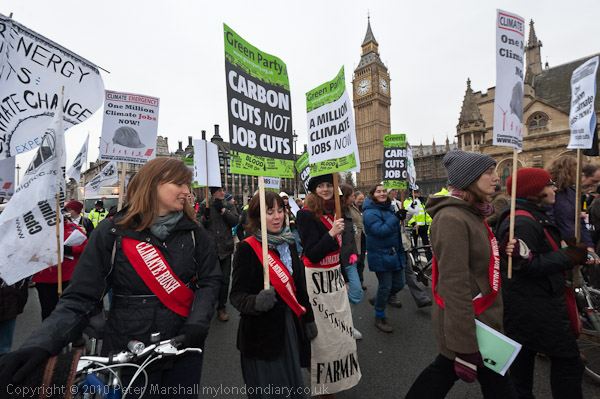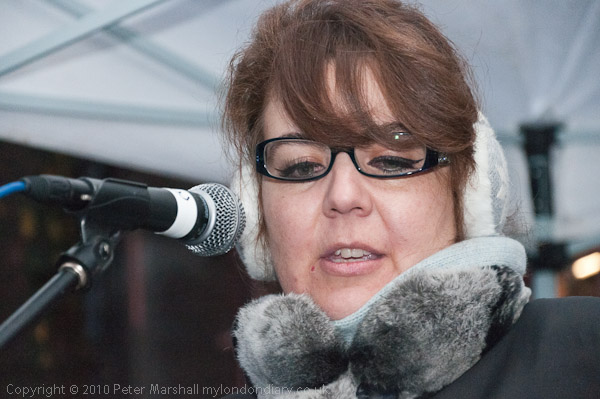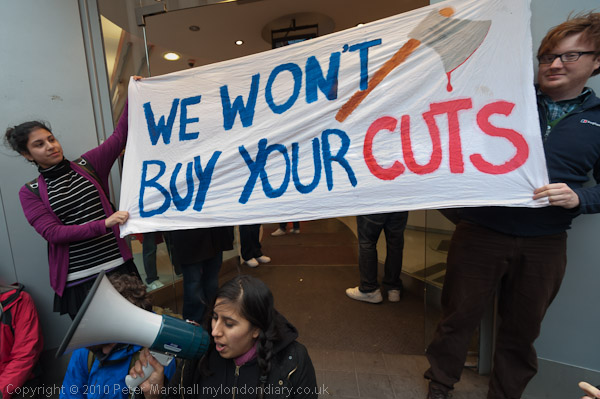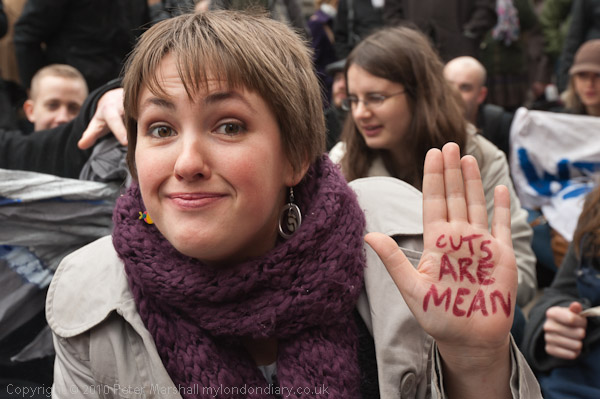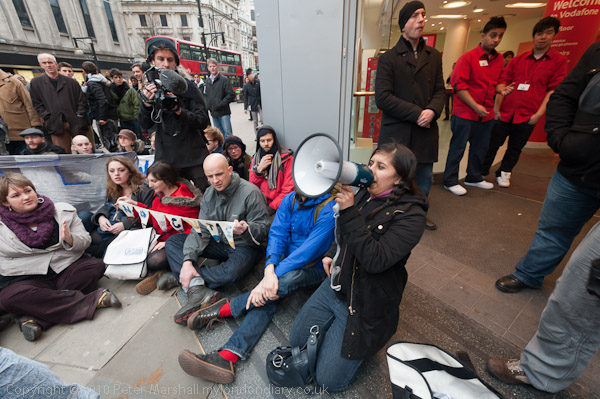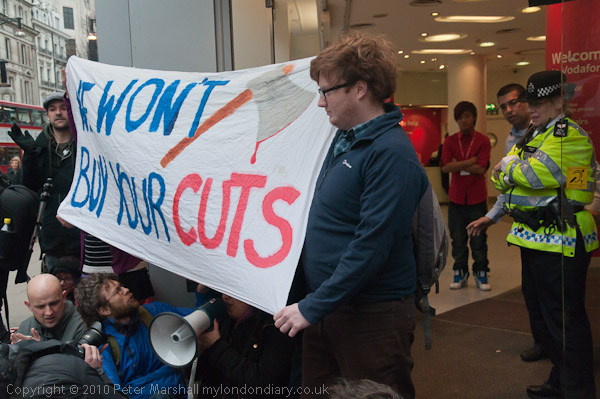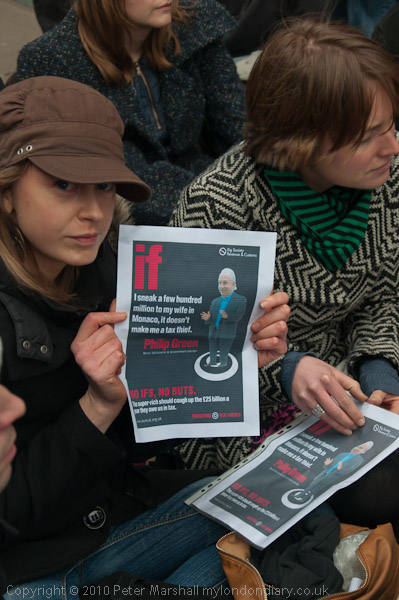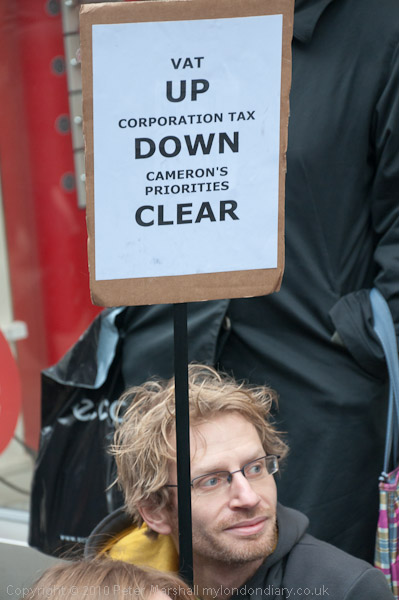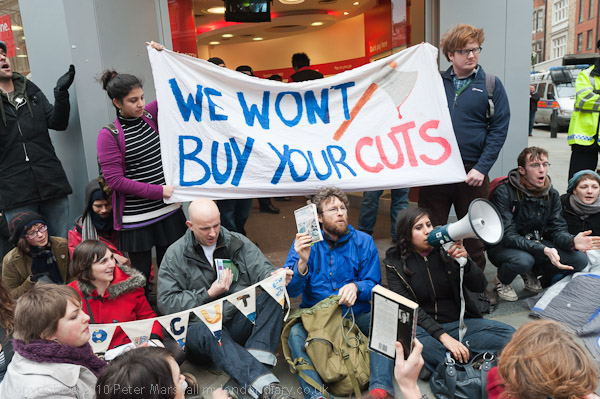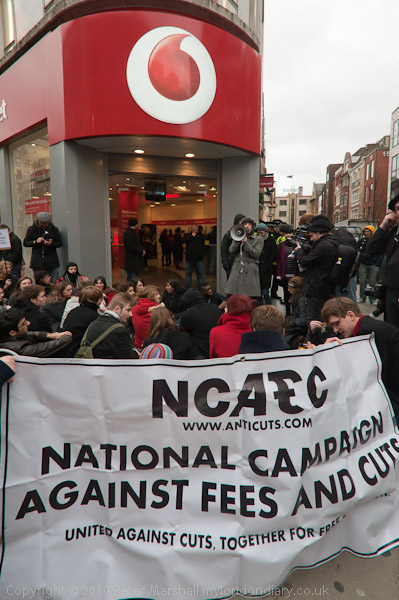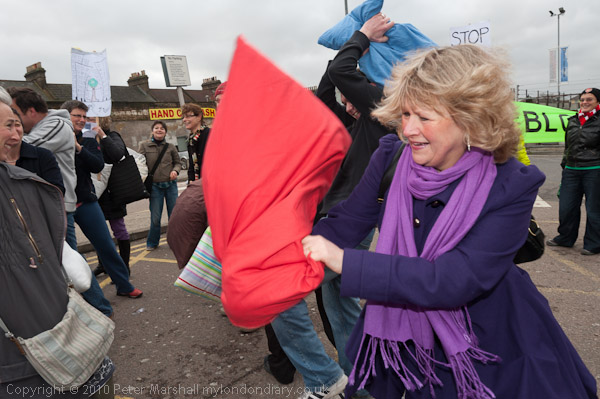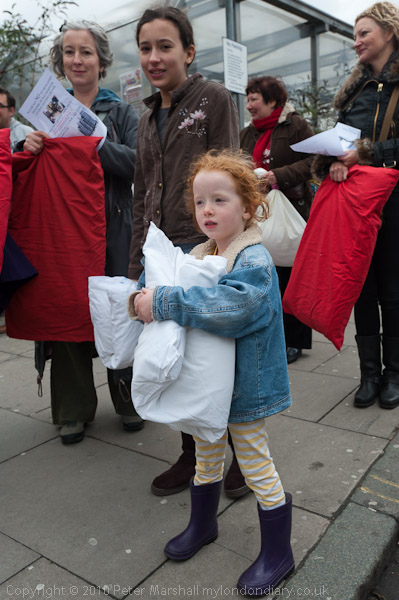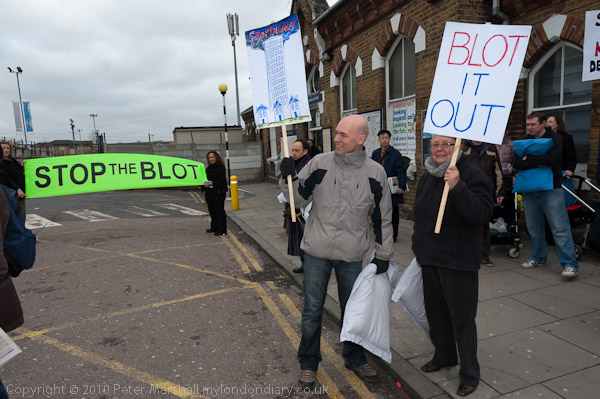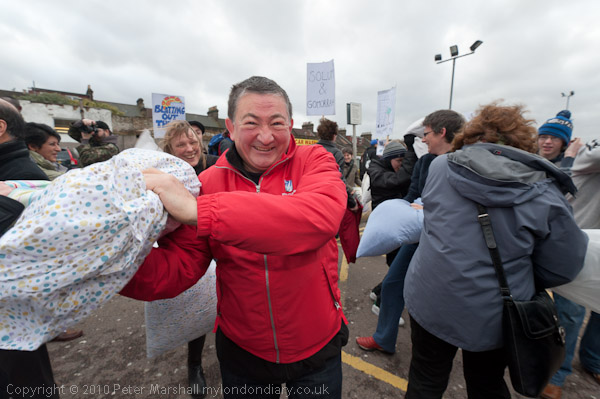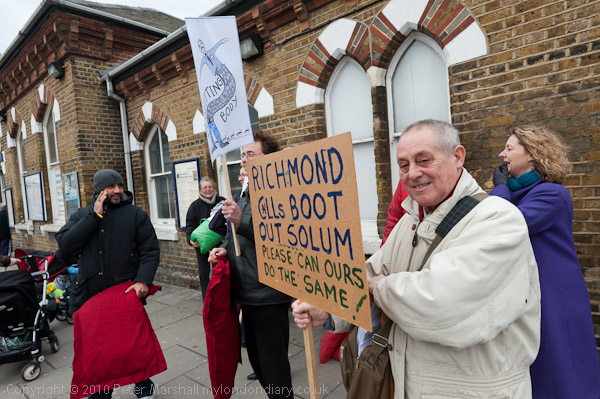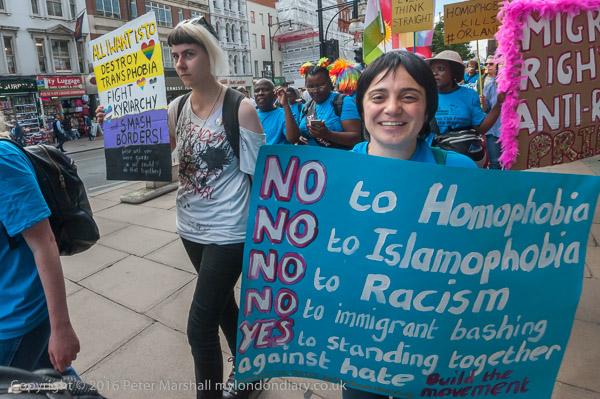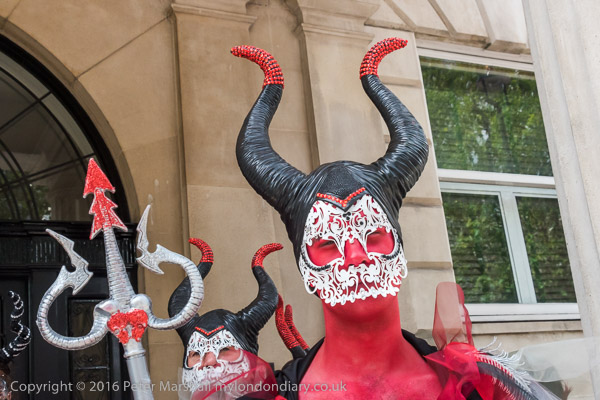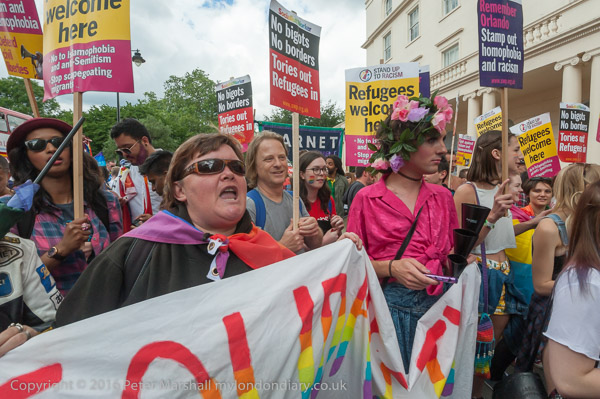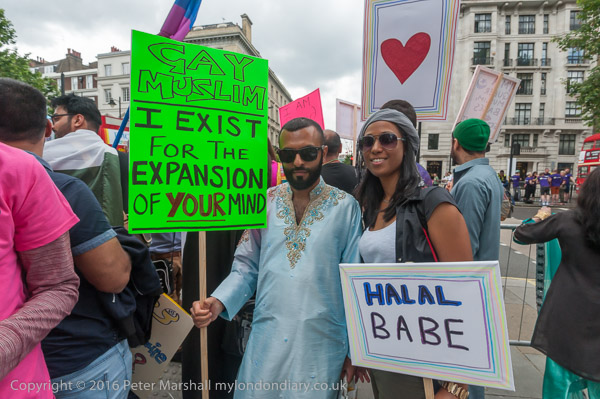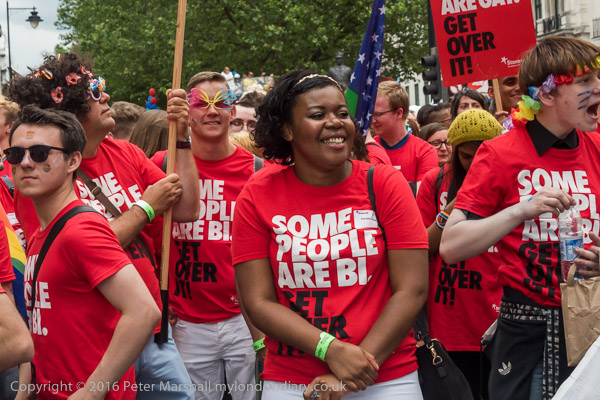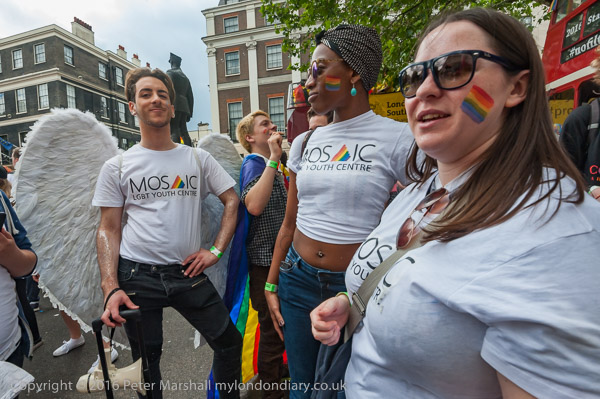Anti-Racist & Migrant Rights reclaim Pride: On Saturday 8th July 2017 Pride stewards stopped the Migrants Rights and Anti-Racist Bloc from joining the Pride procession in London.

Instead the Bloc reclaimed Pride as protest, gate-crashing the route at Oxford Circus and marching in front of the official parade along the route lined by cheering crowds.
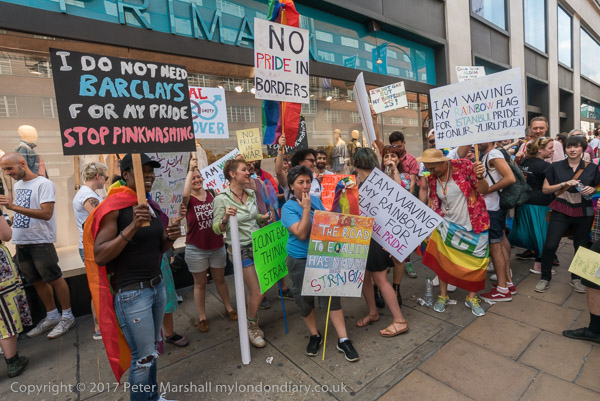
Pride had changed drastically over the years since I first photographed it in the 1990s and had “degenerated from the original protest into a corporate glitterfest led by major corporations which use it as ‘pinkwashing’ to enhance their reputation.” It now “includes groups such as the Home Office, arms companies and police whose activities harm gay people in the UK and across the world.”
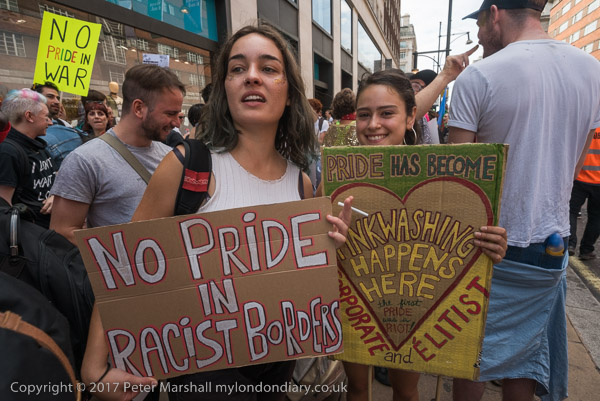
This year, 2025, there are reports that much of the corporate money behind these changes has dried up as companies and major organisations are finding times harder, and Prides in towns and cities are feeling the pinch, with at least one having had to cancel this year’s event.
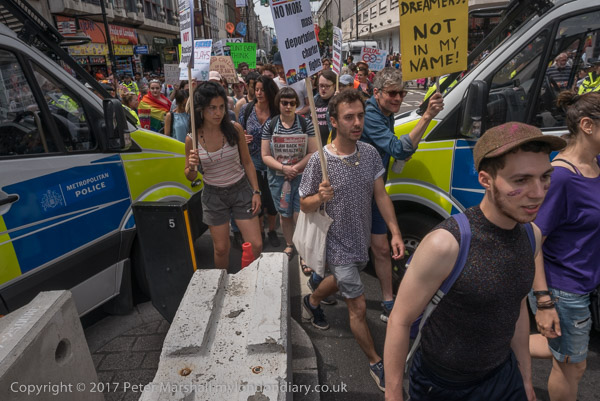
In 2017 the organisers had decided to “strictly limit those who could take part in the procession, with only those who had applied to take part officially and been granted permission being issued with armbands allowing their members to go on the route.”

Until 2017, the event had been open to “open to anyone who wished to take part, who could join on towards the end of the parade as the Migrant Rights and Anti-Racist bloc did” in 2016.
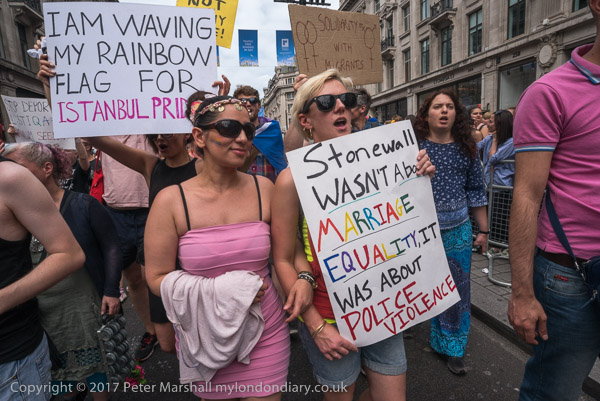
I’d met the Bloc as it gathered on Oxford Street and walked with them as they made their way to Oxford Circus where they had hoped to walk up Regent Street towards the back of the procession. Stewards and police tried to stop them as they marched through a gap between police vans and lifted barriers to make their way into Oxford Circus but failed.

They were now just ahead of the official head of the procession but the stewards were adamant that they could not walk up Regent Street towards the rear where they wished to join it, and with the help of police were able to prevent them.

The Anti-Racist & Migrant Pride bloc were refused entry to the official march but were on the road in front of it and were not going to move out of the way.
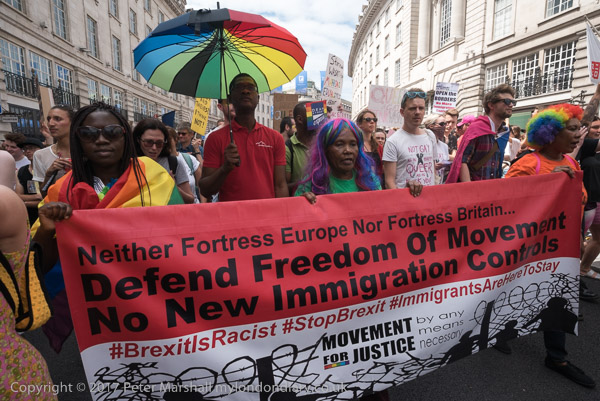
Some minutes of threats of arrest and negotiations followed, but the Bloc stayed on the road preventing the Pride parade from starting. Eventually police decided to let the bloc march along the route in front of the main march – which otherwise was unable to move.

They got a lot of cheers from the waiting crowds – and some puzzlement – but a lot of people took photographs as they went past, and a few managed to come and join them.

They let off smoke flares as they went down Regent St, in the lead the 2017 Pride march in London, and as I walked with them I was able to photograph many of the people cheering them on.

They marched to the end of the route in Whitehall, where most then left the road, but a group of No Pride in War protesters lay down on the road. By now the head of the official parade had reached Trafalgar Square, but had to stop there and wait while police slowly tried to get them to move.
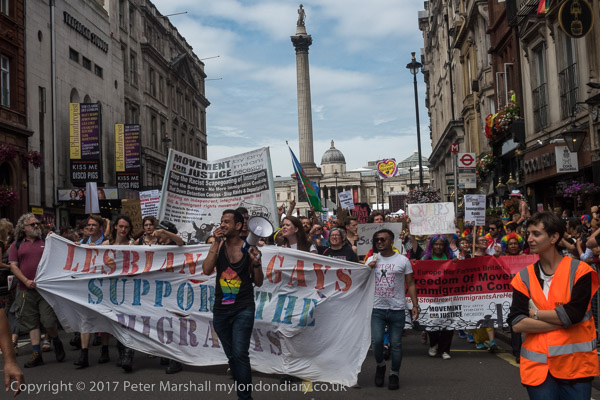
After around 15 minutes the people lying “on the floor got up after police threatened them with arrest if they stayed.“
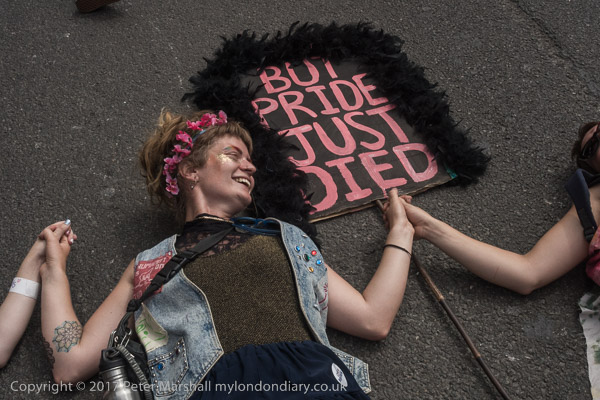
“They had made a very effective protest and had reclaimed Pride as protest. But somehow all of the mainstream media covering the event managed to avoid seeing several hundred people leading the protest and setting off flares.” Our mass media operate a very effective censorship on behalf of the establishment.
It was hard to choose just a few pictures from the event for this post – there are so many more on My London Diary as well as more about the event – from which the quotes above come – at Anti-Racist & Migrant Rights reclaim Pride.
Flickr – Facebook – My London Diary – Hull Photos – Lea Valley – Paris
London’s Industrial Heritage – London Photos
All photographs on this page are copyright © Peter Marshall.
Contact me to buy prints or licence to reproduce.














